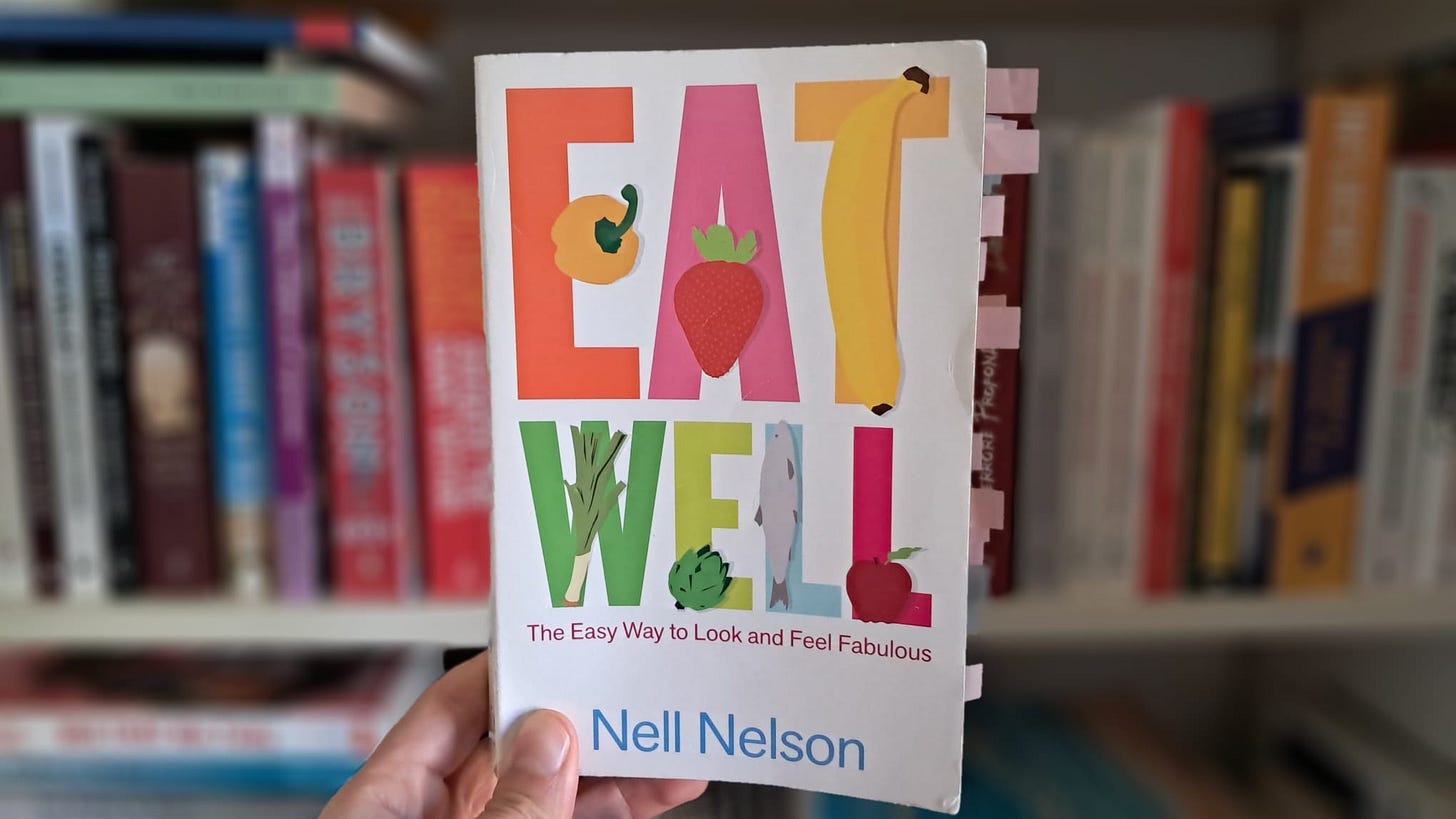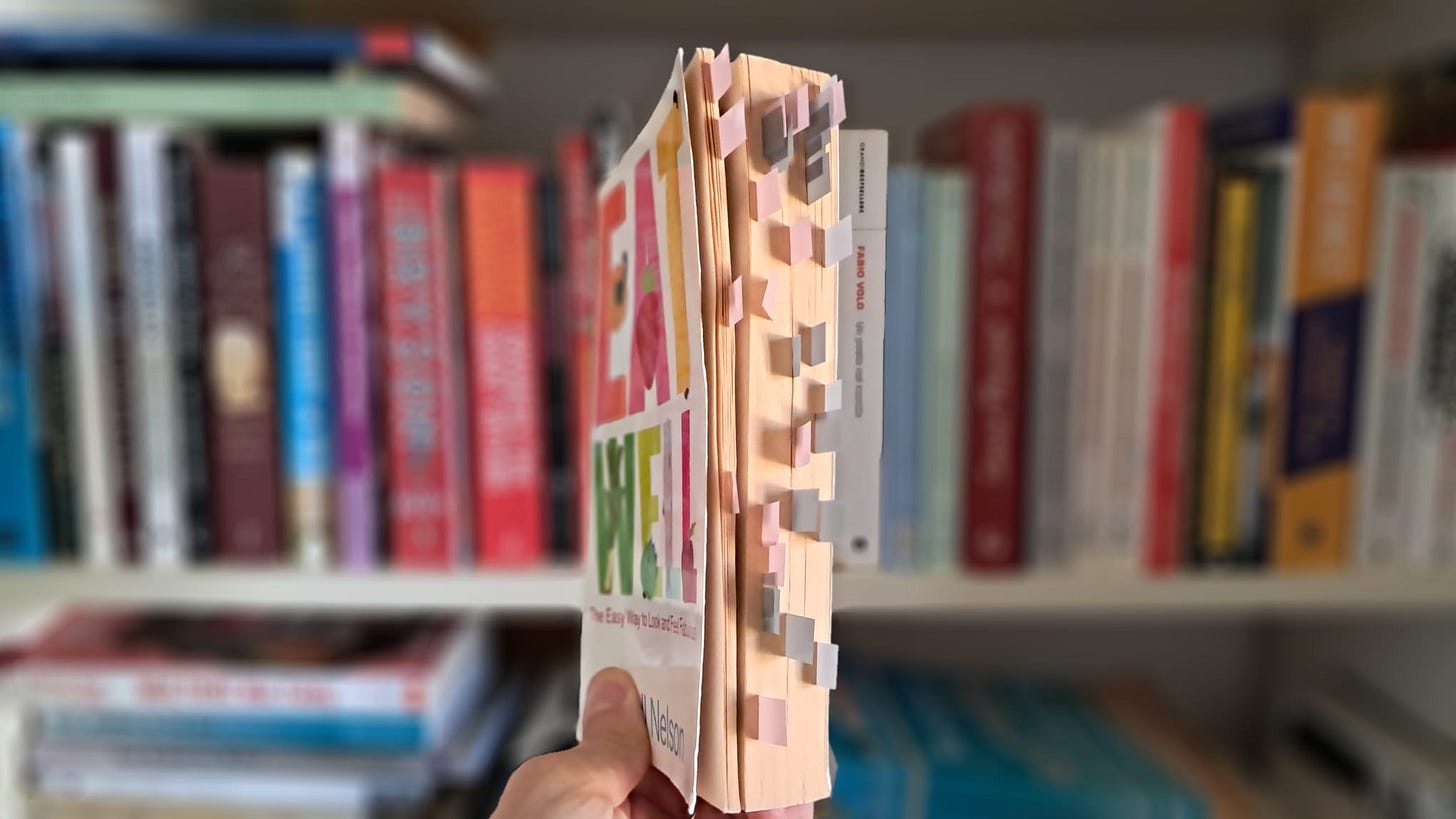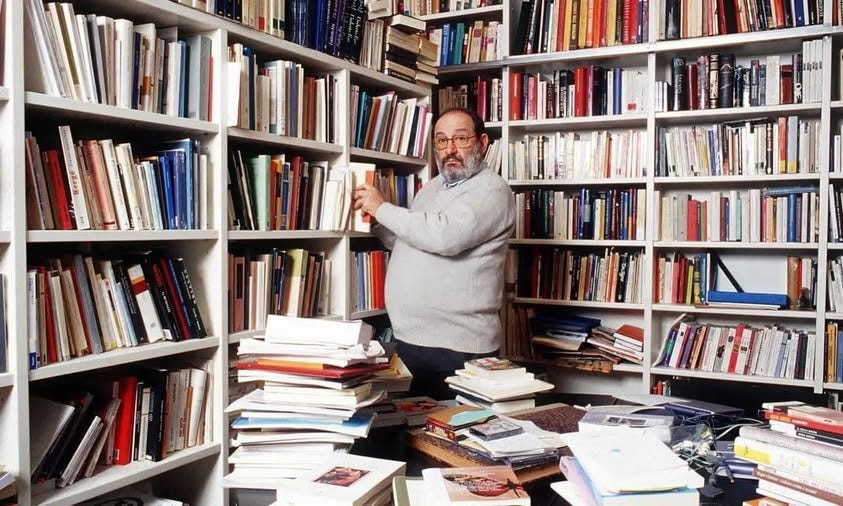Important lessons
Last week I finished reading Eat Well: The Easy Way to Look and Feel Fabulous by Nell Nelson.
Hidden in this book, I found 4 important lessons for nonfiction writers and readers.
Lesson #1: Facts are better when decorated
If you go to a bookshop, you’ll find many titles by doctors, dieticians, and other experts in the field of nutrition.
Nell Nelson is an expert in the field. But what makes her book special isn’t just the useful nutrition facts and tips she included. Tips and facts are easily retrievable online in 3 clicks.
What makes her book unique is what she did to decorate the facts: she told her stories. You’ll find them in each chapter. Stories about dishes she ate, recipes she discovered, and other relevant anecdotes.
For example, Chapter 1—Losing Weight—starts like this:
Funnily enough, losing weight can be a case of ‘be careful what you wish for’. In seven months I lost almost 10kg cycling 5,000 miles from Hong Kong to Sydney through lack of calories versus extreme exercise and a bout of food poisoning.
Lesson: If you’re writing a nonfiction book to help or inspire others, tell us about you and your experiences. You’ll write a book like no other—one ChatGPT could never write.
Lesson #2: Books as medicine
In 2012, I was 24 and was living in London with an Italian girl named Alessia. At the time, my English wasn’t as good as it is now. I wanted to improve it and Alessia knew this. She also knew I’d always been interested in nutrition, so she bought me Eat Well.
When I opened the book and saw meat recipes, I closed it and decided not to read it. I had just gone vegetarian and was trying to convert the whole world to vegetarianism. 😅
Thirteen years later (2 weeks ago), I found myself in that frustrating phase where you’ve just finished reading a book but haven’t yet received the next one you ordered on Amazon.
I looked at my shelves and saw Eat Well. I figured it was better to read a book I had than wait to read one I didn’t have. I also thought I would learn something new from Nell Nelson, even though her book is for omnivores and I don’t eat any animal products.
Look how many things I bookmarked. I even found vegan recipes and cooked 4 of them for Aloha, my partner.
Lesson: We might not be ready for a book today, but we might be in the future.
Umberto Eco said it best:
It is foolish to think that you have to read all the books you buy, as it is foolish to criticize those who buy more books than they will ever be able to read. It would be like saying that you should use all the cutlery or glasses or screwdrivers or drill bits you bought before buying new ones.
There are things in life that we need to always have plenty of supplies, even if we will only use a small portion.
If, for example, we consider books as medicine, we understand that it is good to have many at home rather than a few: when you want to feel better, then you go to the ‘medicine closet’ and choose a book. Not a random one, but the right book for that moment. That’s why you should always have a nutrition choice!
Those who buy only one book, read only that one and then get rid of it. They simply apply the consumer mentality to books, that is, they consider them a consumer product, a good. Those who love books know that a book is anything but a commodity. — Umberto Eco (I’m not sure where this quote comes from but it’s all over the internet)
Lesson #3: Quality doesn’t always depend on popularity
After I finished Eat Well, I discovered that the book had 2 reviews on Amazon and 3 ratings on Goodreads. (It now has 4 because of me.)
This made me wonder: how many other good books go unnoticed?
Lesson: There isn’t always a correlation between how many people rated a book and how good the book is. It may be that a title doesn’t sell because the publisher or the author didn’t do enough to market it, so the book has more of a marketing problem than a quality one.
I’ll remember this next time I’m interested in a title that has only 1 review.
Lesson #4: A big book can be a collection of tiny ones
Eat Well is 350+ pages and is divided into 10 chapters:
Losing Weight
Exercise
Boosting Your Immune System
Coping With Stress
Your Beautiful Skin and Hair and Nails
Foods That Hurt and Those That Heal
How to Have a Happy, Healthy Digestive System
Good Mood Food
Have a Healthy Heart
Some Things Are Worth Getting Fat For
The book gets repetitive at times, but I didn’t mind that. Repeatedly being exposed to the same facts helped me consolidate what I was learning about nutrition.
Even so, I thought Eat Well could have easily been a series of 10 tiny books, each one focusing on a specific aspect of nutrition.
Lesson: If you’re planning to write a nonfiction book, you don’t have to write the whole thing. You can write one chapter (30-100 pages), package it as a book, publish it, and then move on to the next one.
This is what I help authors do through my Tiny Book Author services. Get in touch if you need help.
Thanks for reading this unusually long email.
Please share your thoughts in the comments and let me know what resonates with you the most or the least. 🤓
Before I go, I have a question: Are you planning to eat food in the next few decades? If you are, learn at least the basics of nutrition. I think we can’t afford not to know what goes into our bodies. It’s important!
Keep writing beautiful things.
Talk soon,
Fabio





You might enjoy reading "Why We Eat (Too Much)" by Dr Andrew Jenkinson next. That's also a book with good science AKA facts about how our bodies regulate out weight and appetite and stories that "decorate" those facts and make them easy to digest.